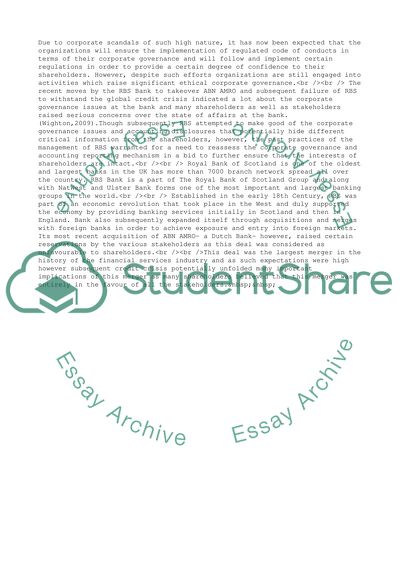Cite this document
(Corporate Governance and Ethics Play at Royal Bank of Scotland Case Study, n.d.)
Corporate Governance and Ethics Play at Royal Bank of Scotland Case Study. Retrieved from https://studentshare.org/business/1726296-the-royal-bank-of-scotland-rbs-ethical-corporate-governance-implications
Corporate Governance and Ethics Play at Royal Bank of Scotland Case Study. Retrieved from https://studentshare.org/business/1726296-the-royal-bank-of-scotland-rbs-ethical-corporate-governance-implications
(Corporate Governance and Ethics Play at Royal Bank of Scotland Case Study)
Corporate Governance and Ethics Play at Royal Bank of Scotland Case Study. https://studentshare.org/business/1726296-the-royal-bank-of-scotland-rbs-ethical-corporate-governance-implications.
Corporate Governance and Ethics Play at Royal Bank of Scotland Case Study. https://studentshare.org/business/1726296-the-royal-bank-of-scotland-rbs-ethical-corporate-governance-implications.
“Corporate Governance and Ethics Play at Royal Bank of Scotland Case Study”. https://studentshare.org/business/1726296-the-royal-bank-of-scotland-rbs-ethical-corporate-governance-implications.


